
Impact labs is a platform that focuses on co-creation and experimentation in social innovation. The lab curates programs for the various stakeholders of the Social Impact Space like Social Startups, NGOs, Multilateral Organisations, CSRs and Researchers to tackle complex social challenges and explore novel methods to drive social innovation.
The objective of the lab is to identify strategic opportunities for convergence in order to maximise social impact in Telangana. Impact Labs creates a space for interdisciplinary and multi-sectoral collaboration where various organisations are provided with a platform to innovate and experiment
Collaboration b/w third sector (NGOs) and social startups can create mutual benefits.
First of its kind to establish strategic partnership between NGOs and Startups, maximize social impact in Telangana.
To leverage on the benefits and bridge the barriers between NGO – Startup collaboration.
Collaboration between the third sector and startups can bring a wide range of benefits. For example, collaboration can result in new products, process or approaches to serve design as well as new revenue streams – ultimately making the third sector organisations more efficient and effective, resulting in greater impact. At the same time, startups can benefit from collaborating – gaining, for example, market knowledge, expertise, visibility and potential investment.
The following modes of collaboration are possible between startups and the third sector:
This initiative focuses on two modes of collaboration between the startups and NGOs :
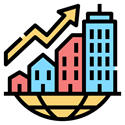
Gain insights into end users, processes context and DATA.

Access to relevant connections in third sector, corporates and Government.

Receive technical, business and financial support.

Pilot, test and develop evidence-based solutions.

Exposure to new technology - cut down on engineering cycle.

Develop new
revenue streams.

Intrapreneurship - change employees behavior.

Help develop innovative solutions that can scale and see the commercial market.






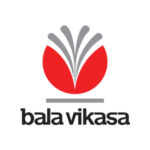


Greenpeace is an independent campaigning organisation, connected to a network of other Greenpeace offices in over 55 countries. They believe in non-violence, personal action, bearing witness, financial independence and to force the solutions which are essential to a green and peaceful future.
Focus Areas
Plan India will focus on girls and young women (under 24 years) primarily from families challenged by social, economic, geographic, and attitudinal vulnerabilities, which is further aggravated by the recent COVID-19 pandemic. It will operate in 100 out of the 739 districts in India, which have the poorest girls’ rights and gender equality index, and that sees the need for advancing girls’ rights through gender-transformative programs
Focus Areas
World Vision India is one of the country’s largest child-focused humanitarian organisations. With over six decades of grassroots experience, they employ proven, effective development, public engagement, and relief practices empowering vulnerable children and communities living in contexts of poverty and injustice to become self-sufficient and bring lasting change.
Focus Areas
Youngistaan Foundation is an NGO based in India that works to improve the lives of the most underprivileged and disadvantaged people through 6 programs that focus on 7 UN SDGs and address: hunger, homelessness, poverty, education inequity, gender inequality, taboos on menstruation, emergency responses, animal rights, environment, climate change, capacity building, and many more issues. Registered in 2014, Youngistaan Foundation has provided a platform for 50,000+ young people to connect with other socially aware individuals and effect real change in our neighborhoods and communities through our programs as volunteers.
Focus Areas
Save the Children works in development and humanitarian contexts with children and partners to help families, communities, and governments identify and use innovations to ensure all children survive, learn, and are protected. Save the Children is India’s leading independent child rights organization, which works in 16 states of the country. They strive to build a world where every child attains the right to survival, protection, development, and participation.
Focus Areas
ActionAid India is part of a global federation and a full affiliate of ActionAid International with poor and excluded at the center of their actions and discourse. ActionAid works in solidarity with the most marginalised communities to further Social and Ecological Justice. They believe in equality and justice for all and support the leadership and empowerment of the marginalised communities in their struggle for a life of dignity as an equal citizen of India.
Focus Areas
SOPAR-Bala Vikasa is a non-profit organization founded with the mission to support and strengthen the development process of India’s poor communities, particularly in Andhra Pradesh and Telangana. With community-driven development programs, they are ardently involved in building the capacities of development professionals, entrepreneurs, and the corporate sector in best practices of sustainable development.
Focus Areas
HelpAge India is a leading charity in India working with and for disadvantaged elderly for the past 42 years.HelpAge advocates for the needs of an estimated 106 million elderly in India It advocates for elder-friendly policies and implementation thereof with Central and State governments. HelpAge India works hand-in-hand with 5000+ Senior Citizens Associations and Elders Self Help Groups understanding elder needs working with and for them, with the aim of serving felt needs of the elderly in a holistic manner, enabling them to live active, dignified, and healthier lives. Over the years, HelpAge India’s focus progressed from Welfare to Development and Rights and Entitlements towards self-reliance.
Focus Areas
The Akshaya Patra Foundation is an NGO in India headquartered in Bengaluru. The organisation strives to eliminate classroom hunger by implementing the Mid-Day Meal Scheme in the government schools and government-aided schools. Alongside, Akshaya Patra also aims at countering malnutrition and supporting the right to education of socio-economically disadvantaged children.
Focus Areas

Incubation Partner
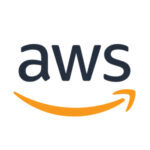
Supported by
Social startup from Telangana or willing to set up base in Telangana.
Have at least one Founder work on it full time.
Should be registered as for profit or section 8 social enterprise
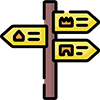
Social startup from Telangana or willing to set up base in Telangana.
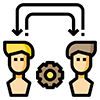
Have at least one Founder work on it full time.

Should be registered as for profit or section 8 social enterprise

Tech Support and Cloud Services by AWS
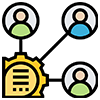
Access to Telangana Social Startup Ecosystem

Access to Funding
network

Showcase opportunity to Government, Administration, and CSRs